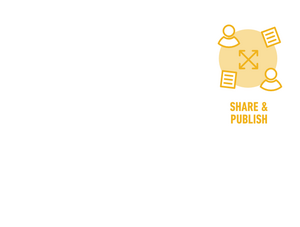Services
Universitätsbibliothek
We support and advise you in the selection and application of licenses for your publications, research data or software. In the spirit of Open Science, our focus is on the selection of free licenses. Our service is designed to help you understand the legal framework and select the appropriate license to regulate the use, distribution and re-use of the content you create. Proper licensing helps protect the rights and interests of creators while enabling the desired dissemination and collaborative use of content.
Contact:
- Publikation services: ub.publikationsservices(at)uni-graz.at
- Research data management: Helmut W. Klug
***
Forschungsmanagement und -service
Die Leistungen des FMS schließt auch die Beratung und Unterstützung zum Technologie- und Wissenstransfer mit ein.

Help and Training
A license in the narrower sense of the concept is a set of legal provisions granting permission to use an object that is protected by intangible property law, e.g., subject to copyright. In a broader sense, however, licenses can also be used to regulate the use of other intellectual property (e.g., knowledge, research data) that is not protected by law. An open or free license, such as a Creative Commons license, allows access, reuse, and redistribution of a work or other intellectual property with few or no restrictions. The exact permissions depend on the full text of the license used.
It should be noted that research data per se are not necessarily protected by copyright because they do not fulfill the character of a work. However, depending on the content and compilation, they may constitute a collective work or a database, which in turn have the character of a work. Therefore, the use after publication should definitely be regulated by granting a license: This provides security for both the data producers and the subsequent users. The use of Creative Commons licenses allows the definition of different degrees of openness.
At the University of Graz, the framework conditions for licensing are regulated in the IPR policy. If data can be freely licensed, a license that is as open as possible (e.g., CC-BY) should be used; this generally supports open science efforts.
Literature
- Ball, Alex. 2014. „How to License Research Data. A Digital Curation Centre and JISC Legal ‘working level’ guide“. Edinburgh: DDC & JISC legal. https://www.dcc.ac.uk/sites/default/files/documents/publications/reports/guides/How_To_License_Research_Data.pdf. (Zotero)
- Brettschneider, Peter, Alexandra Axtmann, Elisabeth Böker, und Dirk von Suchodoletz. 2021. „Offene Lizenzen für Forschungsdaten: Rechtliche Bewertung und Praxistauglichkeit verbreiteter Lizenzmodelle“. o-bib. Das offene Bibliotheksjournal / Herausgeber VDB 8 (3): 1–22. https://doi.org/10.5282/o-bib/5749. (Zotero)
- Hannesschläger, Vanessa, Daniel Spichtinger, und Tereza Kalová. 2022. „Licenses for Research Data. Viedeo recording and slides. “, 29.09.2022. https://hdl.handle.net/11353/10.1603938. (Zotero)
- Margoni, Thomas, und Prodromos Tsiavos. 2018. „Toolkit for Researchers on Legal Issues“, Dezember. https://doi.org/10.5281/zenodo.2574618. (Zotero)
- Schleußinger, Maurice / Rex, Jessica (2019): Forschungsdaten veröffentlichen?. https://zenodo.org/record/3368293. (Zotero)
- Scholger, Walter. 2020. „Urheberrecht und offene Lizenzen im wissenschaftlichen Publikationsprozess“. In Publikationsberatung an Universitäten Ein Praxisleitfaden zum Aufbau publikationsunterstützender Services, herausgegeben von Karin Lackner, Lisa Schilhan, und Christian Kaier. Bielefeld: transcript. https://doi.org/10.1515/9783839450727-007. (Zotero)
